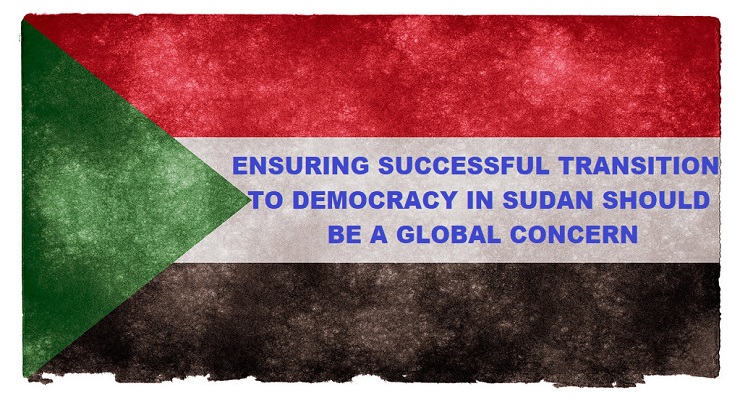 Sudan’s transition is facing dangerous times. The most important threat yet is a the recent attempted coup in the country, though thwarted. This Blog Post by Michelle Gavin is published by Council on Foreign Relations (CFR). Here is an excerpt:
Sudan’s transition is facing dangerous times. The most important threat yet is a the recent attempted coup in the country, though thwarted. This Blog Post by Michelle Gavin is published by Council on Foreign Relations (CFR). Here is an excerpt:
In 2019, critical elements of Sudan’s security forces made common cause with protesters to push former President Omar al-Bashir and his National Congress Party from power. But the two groups had wildly different agendas; while civilians sought transformational structural change, military elites aimed to protect their privileged access to power and economic opportunity. Since then, these two entities (neither of which is entirely unified or cohesive) have coexisted in a transitional power arrangement, rendering the Sudanese government a sort of balancing act. The past week revealed just how unbalanced that government has become, as escalating civil-military tensions threaten to undermine the promise of Sudan’s transition.
On September 21, Sudanese authorities announced that they had thwarted an attempted coup. Civilian leaders assert that the incident is just another example of the urgent need for security-sector reform; meanwhile, military leaders have suggested that civilian mismanagement of the economy provides fertile ground for attempts to overthrow the government. At the same time, Sudan’s volatile regional neighborhood provides ample opportunity for the military to insist that imminent threats require them to remain at the center of the state. On Sunday, the Sudanese military claimed to have repelled an incursion of Ethiopian troops into Sudanese territory.
Against this backdrop of high-stakes civil-military tensions, Sudanese leaders should address the demands of a complex and diverse population impatient for change that brings about relief from economic hardship and political marginalization. In what could be a locally driven bid to demand attention from the center—or a military-backed attempt to undermine the civilian side of government—protesters in eastern Sudan recently shut down ports and a vital oil pipeline, imperiling the fuel supply in Khartoum and threatening a major blow to the country’s already fragile economy. Urgent talks on September 26 appear to have averted immediate disruptions, but long-neglected constituencies are clearly impatient with government, and frustration is ripe for manipulation by those interested in impeding a transition to genuine democracy.
Continue reading here.
Leave a Reply